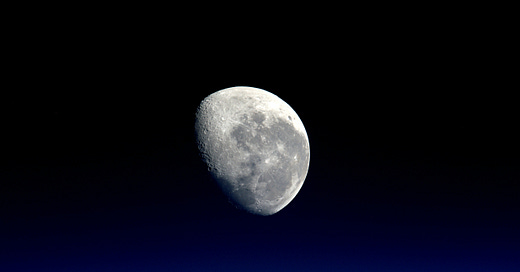I had reconnected with a college roommate, decades after graduation. After catching up and sharing memories, we suddenly wondered what we would say to our younger selves. I blurted out “It’ll be a lot harder than you think.” I’m not sure why I said that; my life by then was going well. No question, though, there had been tough years, and the reunion awoke their memory. Still, I saw immediately that my response would be pointless, even cruel.
I thought about the question for a long time afterward. Perhaps I would warn my younger self, try to head off mistakes: “The ‘calling’ is illusory, the condo a mistake, the car a lemon, the guy a cheat . . . “ but no. Sci fi warns us of the dangers of changing the past. If I avoided those mistakes, big as they were, I might well have made worse. So, no specific advice.
I asked around. A few responses were specific (Invest in Microsoft, have a sleep study, wait to get married). Several suggested being kinder. One scolded, “Get over yourself!” But most offered encouragement: “You can do this.” “You are worthy; you are loved.” “Relax! It’s not that serious!” “Be more outrageous; blaze hotter; run till you drop.”
Eventually I realized that what I needed all those years ago was simple: realism, laced with hope. I would tell my young self “There will be plenty of tough times and plenty of great times. So relax, take a deep breath, and plunge in.”
Suddenly the question transformed
Having answered the question, I put it aside. Then suddenly it returned, transformed and newly urgent: What should I say to the young people around me now? Their lives will be defined by climate change. “Change” is too mild, of course, but other terms – crisis, chaos, catastrophe -- are so harsh that they’re paralyzing. I’ll call it climate disruption.
To continue, will their lives will be defined by it? Certainly they will be affected by it, but other things, unforeseen now, may make even more difference. (In my college years who knew how profoundly feminism would change the world?) Better to say the decades to come will be framed by climate disruption.
You might wonder if I’m ever asked. In some cultures aging makes one an elder; in ours, it just makes us old. In any case, I’m happily out of date on a lot of things. I’m not asked about dating, or apps (let alone dating apps), or breakdancing. But I’ve been talking about the climate for years, and so yes, I am occasionally asked.
How do I answer?
I could start graphically. In a nutshell, the disruption will bring (is bringing) crop failures, then mass migration, and then the collapse of governments. The suffering will not be evenly distributed; the wealth and power of the United States will protect us, and Michigan is further sheltered by the Great Lakes. But everyone will be affected.
Or perhaps I should begin more abstractly: The climate will continue to change for the foreseeable future, too quickly for humans to adapt. Given time, we have found ways to live in the Arctic, the Amazon, even the Sahara. Gradual change we can manage. But climate disruption is rapid and ongoing. We have no idea when some “new normal” will arrive.
In the face of that I usually encourage resilience: Have several ways to make a living; save as much as you can. It’s good advice, but now I see it’s insufficient; it’s like my first instinct to tell my younger self. “Things will be tough.” That meant essentially, “brace yourself.” So does advice about jobs and money.
Beyond “brace yourself”
We all need more than warnings. I need to offer encouragement, in the form of realism infused with hope.
Once one looks for it, hope is everywhere. Not an illusion that somehow the disruption won’t happen; it has begun, and no one knows how it will end. Rather, hope as an appreciation of all that can be done. Scientists, engineers, city planners are inventing new things and new ways of doing tings. Ordinary people are doing the same.
Sometimes they’re bringing back old knowledge: Hawaiians are restoring their traditional low-tech fish ponds; Bangladeshis are again mixing cow dung with mud to produce flood-proof flooring. In North America, we might recreate forests within cities (trees are natural air conditioners). Or, since we need denser housing, maybe we should bring back boarding houses.
Sometimes ingenuity adapts familiar things for new purposes. Bangladeshi cell phone “trees” warn of flash floods and save many lives. In North America, are scooters and e-bikes the cutting edge of urban transportation?
Many things I can’t imagine will solve problems I can’t foresee. Seeing freshly and imagining widely are the special province of the young.
Change always opens space for something new
The Chinese word for crisis does not, in fact, include both ‘danger’ and ‘opportunity.’ But the idea is right: change always opens a space for something new. So if I’m asked again about our climate future, I’ll say: Protect yourself, with job skills and savings; but also find space to imagine and to create. The cure for despair is to do something.
AfterWords
Check out Substack’s new “Notes,” a space for brief comments and links. Not mailed out, not posted on FaceBook. Choose “subscribed” tab for notes from me or other blogs you’ve subscribed to; toggle to the free ranging “home” tab.
Substack blog: Climate optimism: Changing the narrative
New Yorker: Climate solutions we can’t live without




